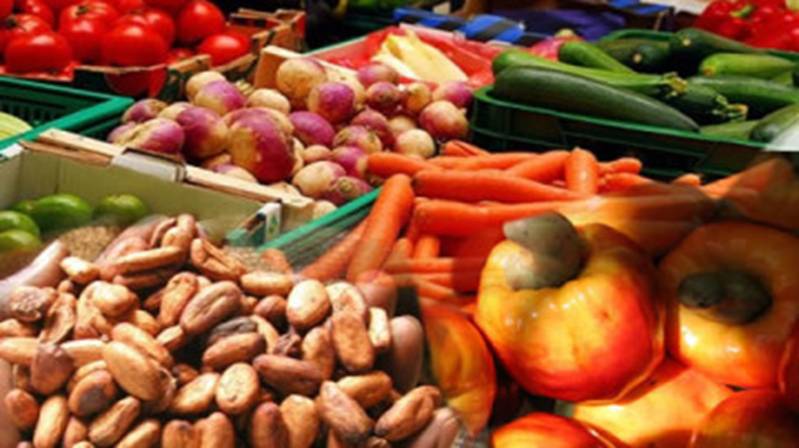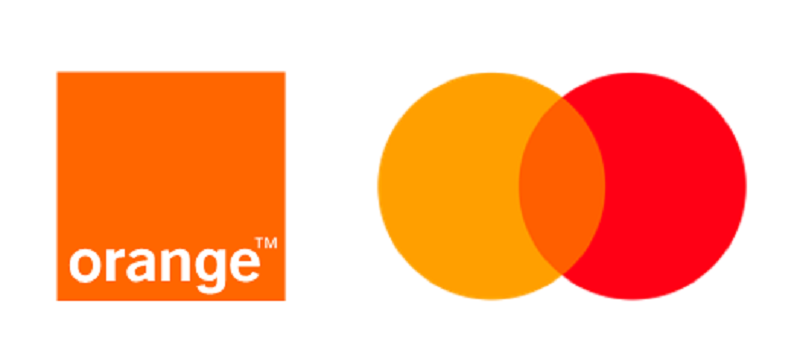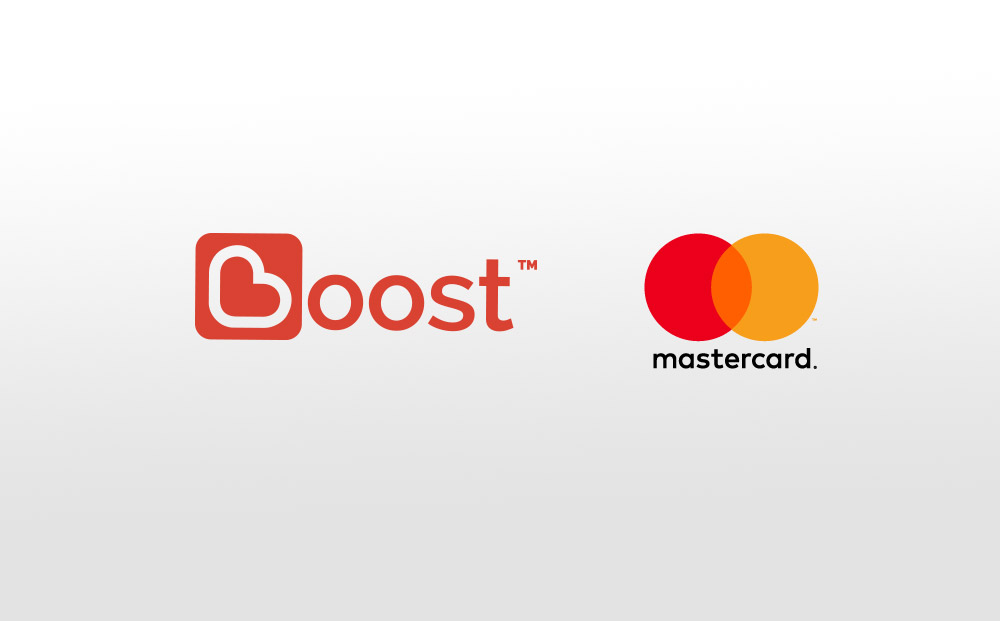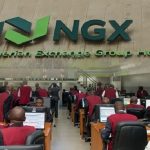Economy
MasterCard Track to Make Ease of Doing Business Easier

By Dipo Olowookere
A new innovation has been introduced by leading payment platform, MasterCard, to make ease of doing business easier.
The new initiative called MasterCard Track™ was launched on Wednesday, September 12, 2018 in collaboration with Microsoft.
Track is a unique global trade platform that will simplify and enhance how companies around the world do business with each other.
While parts of the B2B process have been digitized, large and costly gaps still remain, an estimated $500 billion in annual administrative costs and rising. These costs are added to the inefficiency of the nearly half of all global business transactions, $58 trillion, that are still done in paper.
MasterCard Track will address these fundamental challenges by further streamlining and automating the procure-to-pay-process – enabling businesses to manage business identity, compliance and payments in a more efficient way.
“While there have been great improvements and innovations in the way consumers pay, the global B2B space remains highly inefficient and paper-based”, said Michael Froman, vice chairman and president of strategic growth at MasterCard. “This adds hundreds of billions of dollars of costs and burdensome delays to global trade. MasterCard Track is a tool that will help reduce frictions in the global trading system and promote increased exports – especially by small and medium-sized businesses.”
Unlocking growth for businesses of all sizes
While consumers have become accustomed to a broader choice of technology solutions, businesses too are looking for speed, security and convenience in their everyday operations. From reducing the steps it takes to identify a business partner, to making the payments process simpler and more transparent, MasterCard Track has the potential to unlock economic growth and to level the playing field for small- and medium-sized enterprises (SME).
“Together with MasterCard, we’re helping companies around the world accelerate the pace of their own transformation by creating a more efficient buying and selling process at scale,” said Peggy Johnson, executive vice president, Microsoft. “By building MasterCard Track on Azure, MasterCard will be able to take advantage of our stringent security and compliance standards, our global footprint and our intelligent cloud solutions to help organizations of all sizes drive value from the back-office to the front of the enterprise.”
MasterCard Track underscores the company’s commitment to address several pain points in the global business environment. The new platform draws on and complements the whole range of MasterCard innovation and B2B assets, from account-to-account and card payment solutions to fraud management, data analytics and payment gateway services.
Addressing identity, compliance and payment management needs
Initially, MasterCard is partnering with nine B2B networks and procure-to-pay solution providers – Basware, BirchStreet, Coupa, the Infor GT Nexus Commerce Network, Ivalua, Jaggaer, Liaison Technologies, Tradeshift and Tungsten Network – representing a wide range of global businesses, to roll out Track’s identity, compliance and payment management capabilities to buyers and suppliers.
Beginning in early 2019, customers of these organizations will be able to maintain, retrieve and exchange key information relating to themselves and their trading partners through the Track Trade Directory, a secure, permissioned repository of over 150 million company registrations worldwide. This central directory will integrate feeds from more than 4,500 compliance lists into one place, making the screening and onboarding of suppliers more efficient.
As the platform expands, suppliers will have better visibility into cash flow – when they can expect to get paid and for how much – across multiple networks. Track will help connect all types of payments – account-based, card-based or bank transfer – within the platform, while also connecting purchase order and invoice information. This will streamline and simplify back-office reconciliation, one of the largest burdens facing businesses today.
Through its partners, Track will enable B2B networks, banks, insurance companies and technology providers to extend value-added services to business customers, such as enhanced data analytics and trade finance.
Integrated with Singapore’s National Trade Platform
In Singapore, MasterCard Track has already been integrated with the National Trade Platform, a one-stop digital trade ecosystem which brings together key logistics functions, such as movement of goods as well as regulatory and financial elements for players across the trade value chain. MasterCard Track facilitates secure and efficient electronic payments between buyers and suppliers, helping to strengthen the country’s position as the leading trading hub for the region.
Economy
MTN, IHS, Huawei Adopt Nigeria’s New e-Fiscal Platform for Tax Payments

By Adedapo Adesanya
Nigeria has commenced the rollout of a national Electronic Fiscal System (EFS) to modernise Nigeria’s tax collection and administration as well as enhance collection transparency.
Rolled out by the Federal Inland Revenue Service (FIRS), the EFS incorporates an electronic invoicing solution known as the Merchant-Buyer Model.
The platform, according to the tax body, went live on August 1, 2025, after a successful pilot phase that began in November 2024.
In a statement on Sunday, the Special Adviser on Media to the FIRS Chairman, Mr Dare Adekanmbi, said that in less than two weeks since the launch, at least 1,000 companies, representing 20 per cent of more than 5,000 eligible firms, have adopted the system and begun integrating with the FIRS MBS platform.
The remaining large taxpayers must complete their onboarding and integration before the new deadline of November 1, 2025. The initial August 1 deadline was extended by three months to accommodate companies that made genuine efforts to meet the original date but faced operational constraints.
The platform is designed to make tax compliance easier, faster, and more transparent for taxpayers, providing the FIRS with real-time visibility into commercial transactions while ensuring the authenticity, accuracy, and completeness of invoices.
The e-invoicing solution is being rolled out in phases, with medium-sized and emerging businesses to be onboarded after the large taxpayer category. It aligns with global best practices and supports the Federal Government’s broader objectives of enhancing revenue assurance, reducing tax evasion, and harmonising revenue reporting under the Nigeria Revenue Services Reform Act.
The first phase targeted large companies with an annual turnover of N5 billion and above.
Companies like MTN Nigeria, Huawei, and IHS have started to use the platform, FIRS disclosed.
“MTN Nigeria became the first taxpayer to transmit live electronic invoices to the FIRS, officially ushering in the e-invoicing regime. Huawei Nigeria and IHS Nigeria have also concluded test transmissions and are set to go live in the coming days,” the revenue agency said.
In collaboration with the National Information Technology Development Agency (NITDA), FIRS has incorporated service providers into the ecosystem to act as both system integrators and access point providers. These providers will support onboarding, system integration, and invoice transmission processes for taxpayers.
FIRS also commended large taxpayers, tax consultants, and service providers for their cooperation and commitment to the success of the project, and urged all remaining eligible companies to take advantage of the extended deadline to comply.
The FIRS said its e-Invoicing Implementation Team will continue to hold stakeholder engagements, including webinars, workshops, and town hall meetings, to ensure a smooth transition ahead of the November deadline.
Economy
India Buys Two Million Barrels of Nigerian Crude to Wean Off Russian Sources

By Adedapo Adesanya
India has started snapping up Nigerian crude oil as it looks to wean itself off Russian crude oil sources, following threats from President Donald Trump of the United States.
Reuters reported that the Indian Oil Corporation (IOC) recently bought one million barrels of Nigeria’s Agbami crude for September delivery in a tender awarded to global trader, Trafigura.
The purchase is part of a broader sourcing spree that has seen Indian refiners secure millions of barrels from non-Russian sources.
President Trump cited India’s imports of Russian crude when imposing an additional 25 per cent tariff on imports from India on August 6, which is due to take effect on August 28.
Reuters reported that Indian Oil Corp and Bharat Petroleum have bought a million barrels of non-Russian crude for delivery in September and October after the US pressured India to halt purchases from Russia.
Indian state refiners had been largely absent from the spot market since 2022, instead becoming one of the few purchasers of cheaper Russian crude after Russia invaded Ukraine. However, they paused Russian purchases in late July after pressure from US President Donald Trump.
Over two million barrels of crude oil were said to have been bought from Nigeria for September and October deliveries in India.
India’s second biggest state refiner BPCL bought barrels of oil through negotiations for September arrival, a source familiar with the purchases said.
That included one million barrels of Angola’s Girassol, one million barrels of US’ Mars, three million barrels of Abu Dhabi’s Murban, and two million barrels of Nigerian oil.
In a separate report, the publication reported that India imported about 1.8 million barrels per day of Russian crude in the first half of the year, or about 37 per cent of its total, citing data compiled by commodity analysts Kpler.
A breakdown showed that about 90 per cent of its Russian imports came from Russia’s European ports and was mainly Urals grade. This is a medium sour crude and it would raise challenges for Indian refiners if they sought to replace all their Urals imports with similar grades from other suppliers.
Economy
Nigeria Exports 236 Different Non-Oil Products Worth $3.22bn in H1 2025

By Aduragbemi Omiyale
In the first half of 2025, the total value of non-oil products exported from Nigeria stood at $3.22 billion, the Nigerian Export Promotion Council (NEPC) has revealed.
According to a statement from the agency, this is 19.59 per cent higher than the $2.69 billion achieved between January and June 2024.
It was also disclosed that the volume of non-oil goods went up by 5.48 per cent to 4.04 million metric tonnes in the period under review from the 3.83 million metric tonnes posted in the first half of last year.
The NEPC stated that during the period, Nigeria exported 236 different products, 16.83 per cent higher than the 202 products exported in the corresponding period of last year, with the items ranging from agricultural commodities, extractive industries, and manufactured as well as semi-processed products.
Business Post reports that the three major exporters were Indorama Eleme Fertiliser and Chemical Limited, Starlink Global and Ideal Limited, and Dangote Fertiliser Limited, accounting for 11.92 per cent, 8.82 per cent, and 6.39 per cent, respectively, mainly from the sale of fertilisers and cocoa products.
The statement revealed that the improvement in the non-oil exports was due to a rise in global demand for Nigerian products, wider market access, and tariff relief provided under the African Continental Free Trade Area (AfCFTA) agreement.
It was stated that efforts by NEPC to educate Nigerian exporters like capacity building on quality and standards, packaging and labelling, export documentation and certifications also contributed to the increase.
The statement quoted the chief executive of NEPC, Ms Nonye Ayeni, as saying, “I am pleased to inform you that non-oil products exported in the first half of 2025 were valued at $3.225 billion. This shows an increase of 19.59 per cent as against the sum of $2.696 billion recorded for the first half of the year 2024.”
She said the country has witnessed a growth in value-added exports, as more Nigerian exporters adopted value-addition practices, as well as growing demand from emerging economies, such as India, Brazil, Vietnam, and some African countries.
“However, it is pertinent to state here that the non-oil export of Nigerian products is gradually diversifying from traditional agriculture exports to semi-processed/manufactured products,” Ms Ayeni added.
She also noted that, “Nigeria exported 488 million metric tonnes of products worth $83.538 million to 21 African countries outside ECOWAS. This is reflecting an increase of 2.59 per cent of the total export value as compared to 1.96 per cent for the same period of 2024.
“It also lends credence to the fact that the AfCFTA holds the key to intra-African trade. Indeed, Nigeria’s active participation in the AfCFTA is a testament to the significant opportunity it offers to exporting companies, also Small Medium Enterprises (SMEs).”
“A total of 10,214 Nigeria Export Proceed Forms (NXPs) were opened through these banks for non-oil exports with Zenith Bank Plc leading the pack with 31.98 per cent of the total NXPs for non-oil export.
“First Bank Nigeria Plc and Guaranty Trust Bank Plc came second and third, with 12.44 per cent and 11.47 per cent, respectively,” she disclosed.
-

 Feature/OPED6 years ago
Feature/OPED6 years agoDavos was Different this year
-
Travel/Tourism9 years ago
Lagos Seals Western Lodge Hotel In Ikorodu
-

 Showbiz3 years ago
Showbiz3 years agoEstranged Lover Releases Videos of Empress Njamah Bathing
-

 Banking7 years ago
Banking7 years agoSort Codes of GTBank Branches in Nigeria
-

 Economy2 years ago
Economy2 years agoSubsidy Removal: CNG at N130 Per Litre Cheaper Than Petrol—IPMAN
-

 Banking2 years ago
Banking2 years agoFirst Bank Announces Planned Downtime
-

 Sports2 years ago
Sports2 years agoHighest Paid Nigerian Footballer – How Much Do Nigerian Footballers Earn
-

 Technology5 years ago
Technology5 years agoHow To Link Your MTN, Airtel, Glo, 9mobile Lines to NIN




















